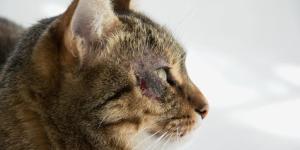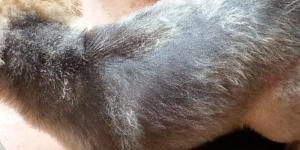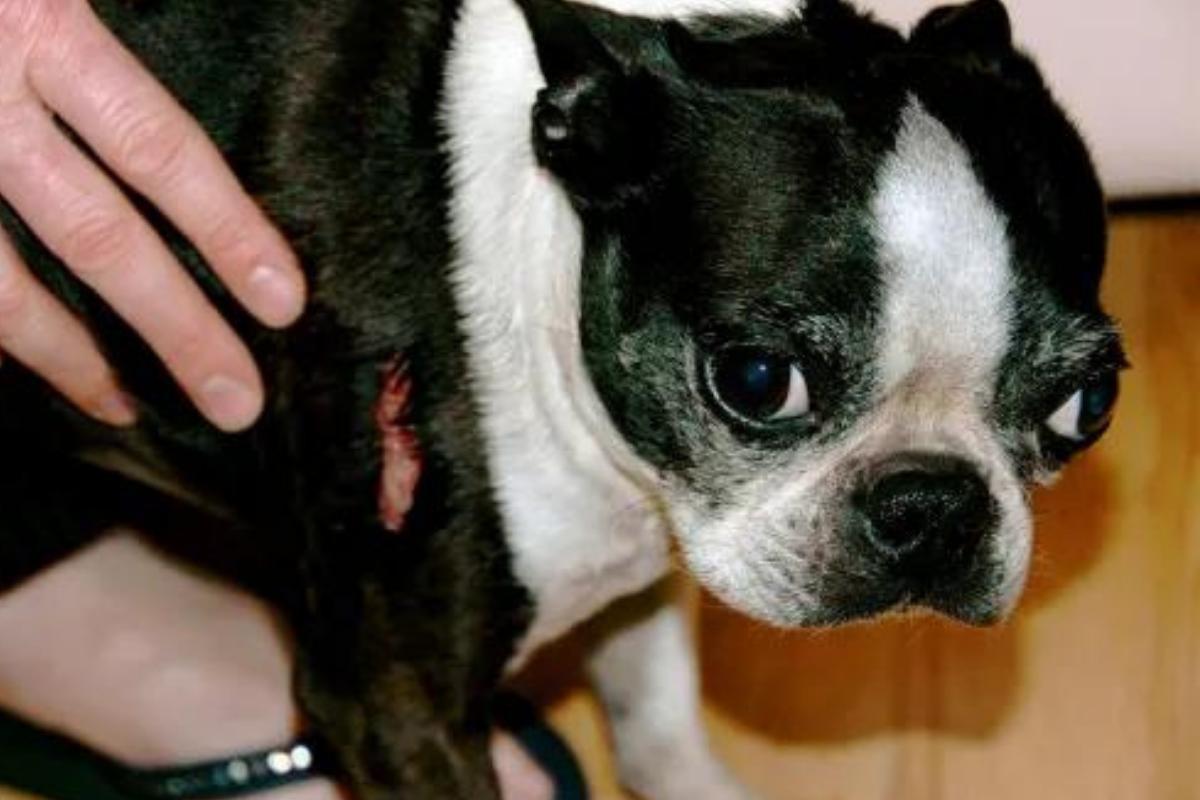My Dog's Wound Won't Heal

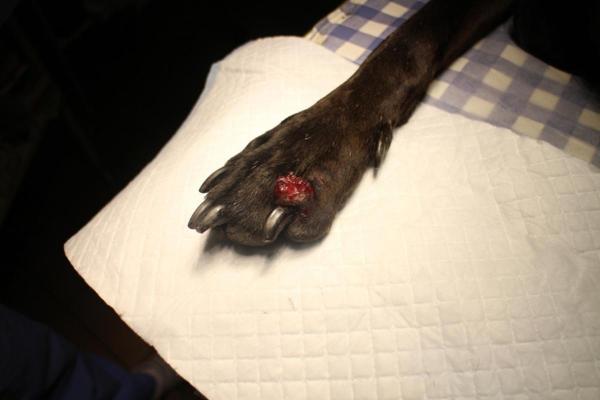

See files for Dogs
Wound healing is a process which is affected by various factors. A serious of macroscopic, microscopic and molecular events need to occur for a dog's wound to heal properly. Tissue regeneration is a marvelous process which helps organisms survive, but is often a more delicate process than we would like it to be. When a dog's open wound is not healing, we need to know the reasons behind it. Not only will it affected the localized healing of the wound, but it can also threaten the systemic health of the dog. In some cases, it can point to a potentially fatal condition.
At AnimalWised, we look at why my dog's wound won't heal. To understand the causes of a dog's wound not healing, as well as what treatment options may be available, we also examine the healing process of dog wounds in more detail. This requires taking a closer look at dog wound infection.
How long does it take for a dog wound to heal?
To understand how long we might expect a dog's wound to heal, we need to look at the healing process itself. When a traumatic injury causes an open wound on any part of a dog's external body, a set of mechanisms will immediately begin to restore the tissue back to health.
The healing process of a dog's wound is divided into 3 consecutive phases, in which macroscopic, microscopic and molecular events take place. These phases are:
- Hemostatic/inflammatory phase: immediately after the injury occurs, platelet aggregation and primary thrombus (blood clot) formation begin. The coagulation cascade then takes place, allowing the generation of fibrin networks and the subsequent formation of a more established thrombus (secondary thrombus) that allows bleeding to cease. After 6 hours post-injury, white blood cells (such as neutrophils and macrophages) begin to arrive at the wound site, helping to decontaminate and debride the wound.
- Proliferative phase: 2-3 days after the injury, fibroblasts (tissue-generating cells) arrive at the wound site which synthesize a new collagen matrix. At the same time, the process of angiogenesis takes place, which consists of the formation of new blood vessels. Between days 7 and 9, the re-epithelialization phase takes place, through which the keratinocytes will proliferate to restore the integrity of the skin.
- Tissue remodeling phase: this process can last several months. The collagen that was deposited during the wound repair is replaced by a more stable collagen similar to the one of the original dermis. In this way, the skin recovers its pre-injury composition and wound repair is considered complete.
This basic process of wound healing (not counting the remodeling phase) can last around 10 days. However, we must bear in mind that this time can vary considerably depending on:
- Wound extension
- Wound depth
In addition, there are a number of factors that can interfere with healing and delay wound healing. In the next sections, we will talk about the main factors that can affect healing in dogs.
The circumstances of the wound trauma can also influence its care. This is a guide to help promote general wound healing, but you can see something more specific with our article on a dog with a bite wound from another dog.
Advanced age
Healing occurs more rapidly in young dogs than in adult or geriatric dogs, making age an influencing factor in this process. As the dog's age progresses, a thinning of the epidermis, a decrease in collagen and elastic fibers and, a decrease in moisture due to the reduction in the number of sebaceous glands occur.
It is common for the wounds of older dogs to take longer to heal. As it is an intrinsic factor to the animal, the only thing that can be done it is to maintain wound care for as long as necessary. We can also ensure we have some basic strategies to boost their immune system, such as providing the right diet and allowing them appropriate time to recover.
See how you can best help maintain an elderly dog's health with our complete senior dog care guide.
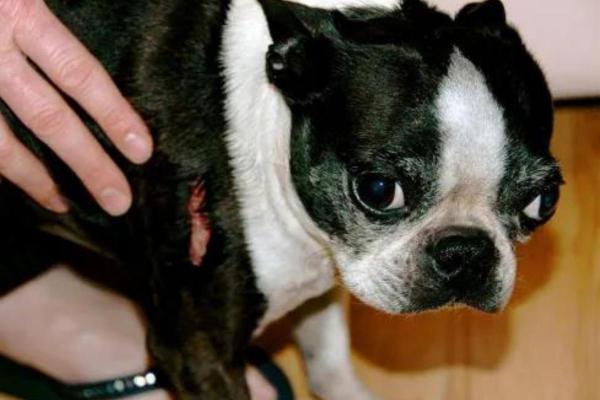
Malnutrition
Poor diet does not only affect the health of elderly dogs. Malnutrition can prevent or delay the healing process, since there are a series of nutrients that are essential for tissue repair.
Nutritional deficiencies of protein and amino acids, omega-3 fatty acids and micronutrients (vitamins and minerals) have been linked to a prolonged inflammatory phase of healing. There is also a decreased collagen production and a higher rate of infection.
When a dog's open wound is not healing, it is essential to review their diet for the possible existence of nutritional deficiencies. We then need to correct them as soon as possible. A healthy, balanced diet according to the needs of each animal will be the basis for proper wound healing.
There are also cases where we may find an abandoned dog with wounds that are not healing. In these cases, a lack of nutrition is likely. See our guide on how to care for a malnourished dog to learn more.
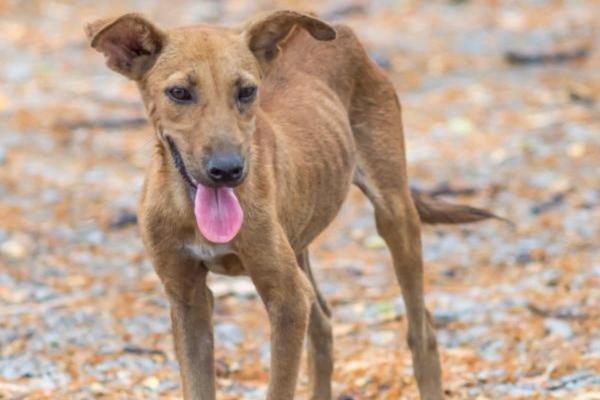
Hypoproteinemia
Hypoproteinemia refers to a decrease in the concentration of proteins in the blood. It has two main underlying causes:
- Reduced protein synthesis: the liver is the organ responsible for protein synthesis. Any liver disease in dogs that affects protein synthesis will cause a decrease in protein in the blood.
- Protein loss: can occur through the urinary route, especially in the case of kidney diseases, or through the digestive route, the latter due to intestinal pathologies.
Proteins are molecules necessary for the proliferation of cells involved in open wound healing (e.g. fibroblasts, neutrophils and macrophages), for the synthesis of collagen and the neoformation of blood vessels. Protein deficiency is associated with poor healing rates in dog wounds.
To promote wound healing in dogs with hypoproteinemia, it is necessary to establish a specific treatment for the primary disease that is causing a low protein level in the blood.
Poor wound management
Delayed open wound healing can also be due to poor wound management:
- Foreign bodies: the presence of hair and debris prevents proper wound healing. For this reason, it is important to shave the hair around the perimeter of the wound site and perform periodic ablution to keep the tissue free of any foreign body.
- Infection: when the appropriate treatment is not performed or the wound is not protected with dressings and/or bandages, there is a high probability of infection. This interferes with the repair of the skin. The same can happen when Elizabethan collars or other items are not put on to prevent dogs from licking or scratching at lesions. Licking can spread bacterial to cause wound infection in the dog.
- Necrotic remains: the presence of dead (necrotic) tissue also makes it difficult for wounds to heal. It is important to debride the wounds in order to remove any necrotic debris that may interfere with healing. Naturally, this procedure should only be performed by a veterinary professional or under their prescription.
- Use of irritating products: the use of irritating products such as alcohol or hydrogen peroxide can delay healing. The same happens when antiseptics such as betadine or undiluted chlorhexidine are used (as a reference, betadine should be diluted to 10% and chlorhexidine to 40%).
To avoid delayed healing due to these causes, it is essential to perform regular wound dressings (2-3 times a day) and protect the wound following the guidelines set by a veterinarian.
Learn more about providing the right wound treatment with our article on whether chlorhexidine is safe for dogs.
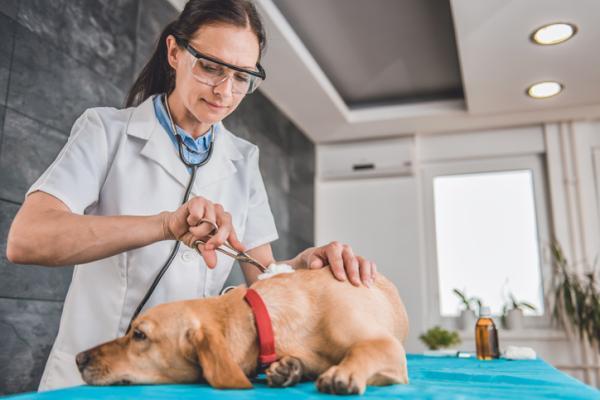
Immunocompromised dogs
Dogs with an immune-mediated disease, dogs with high levels of stress or dogs with a lowered immune system for any reason will have problems in wound healing. This is because immunocompromised dogs have a weaker immune response, so the bodies molecular wound response is slower[1]. It also means they are more prone to a dog wound infection because their immune system struggles to cope.
Common autoimmune diseases in dogs include:
- Hypothyroidism
- Immune-mediated arthritis
- Lupus
- Hemolytic anemia
- Immune-mediated thrombocytopenia
- Addison's Disease
Dogs with an autoimmune disease are generally expected to take longer time in wound healing. Supportive therapies and treatments can be used to boost the immune system, but they don't tend to have a cure. Learn more with our article on the types of lupus in dogs.
Diabetes
Dogs with diabetes also tend to have slower tissue regeneration than otherwise healthy dogs. Different phases of the open wound healing process are affected due to problems with blood-glucose levels. Specifically, it decreases the initial inflammatory response, decreases collagen production and re-epithelialization is blocked.
All this makes wound closure slower than desirable and makes the dog more susceptible to developing infections. To avoid this, it is important to keep the disease under control with correct pharmacological treatment and adequate dietary management, the former including insulin for dogs with diabetes.
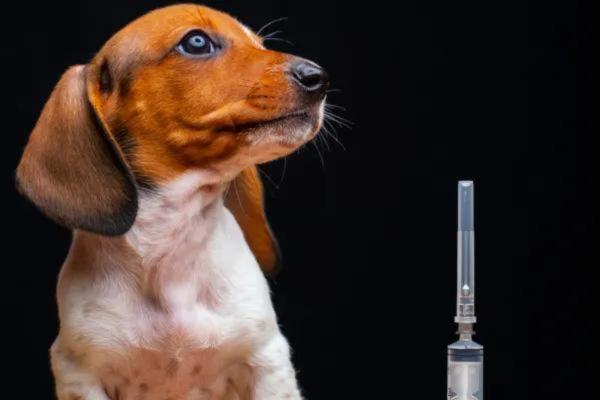
Corticosteroids
Dogs on chronic corticosteroid treatment may have greater difficulty in wound healing. These drugs are used to treat various inflammatory processes, allergies and spinal injuries, as well as some of the aforementioned immune-mediated diseases.
Corticosteroids also inhibit collagen synthesis and remodeling, as well as impair wound re-epithelization (skin regrowth). To avoid these and other adverse effects of corticosteroids for dogs, it is important to establish therapies with the minimum effective dose and withdraw treatment gradually as soon as the pathology to be treated is controlled.
The same effect can occur in patients with Cushing's syndrome. This is a condition characterized by the presence of high levels of cortisol in the blood. To avoid healing problems in these dogs, a specific therapy (pharmacological and/or surgical) should be established depending on the specific type of Cushing's syndrome in dogs.
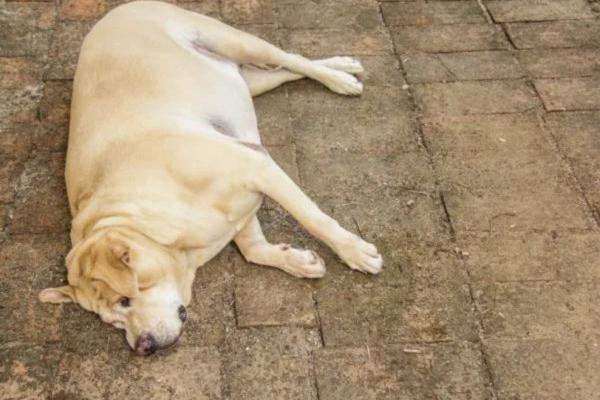
Obesity
Overweight dogs have greater difficulty healing wounds. Excess body fat hinders blood perfusion and alters collagen and drainage of the lymphatic system. If there is an obese dog with a wound that isn't healing, it is essential to establish a weight loss regimen. This combines an adequate diet and a moderate exercise routine.
This article is purely informative. AnimalWised does not have the authority to prescribe any veterinary treatment or create a diagnosis. We invite you to take your pet to the veterinarian if they are suffering from any condition or pain.
If you want to read similar articles to My Dog's Wound Won't Heal, we recommend you visit our Skin problems category.
1. Alshehabat, M., et al. (2020). Wound healing in immunocompromised dogs: A comparison between the healing effects of moist exposed burn ointment and honey. Veterinary World, 13(12), 2793-2797.
https://www.doi.org/10.14202/vetworld.2020.2793-2797
- Argentine Society of Dermatology. (2008). Consensus on wound healing.

